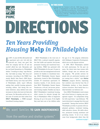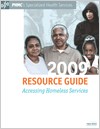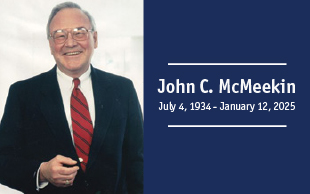 In 2007, 41-year-old Rita Hernandez had an apartment and a job. Life with her 3-year-old son, Cesar, was good. But when her company laid her off and she couldn’t afford her rent, Hernandez and her son found themselves at a Philadelphia shelter. “I would go to sleep,” says Hernandez, “and wake up crying.” Her story isn’t uncommon. According to the PHMC Community Health Data Base’s 2008 Household Health Survey, more than half (55%) of Philadelphia adults report difficulty making their monthly housing payments, including utilities. And during this economic downturn, many shelters have seen increases in clients who have lost their jobs and homes. For Hernandez and her son, relief came 10 months into their ordeal from HELP Philadelphia, a PHMC-managed transitional housing program.
In 2007, 41-year-old Rita Hernandez had an apartment and a job. Life with her 3-year-old son, Cesar, was good. But when her company laid her off and she couldn’t afford her rent, Hernandez and her son found themselves at a Philadelphia shelter. “I would go to sleep,” says Hernandez, “and wake up crying.” Her story isn’t uncommon. According to the PHMC Community Health Data Base’s 2008 Household Health Survey, more than half (55%) of Philadelphia adults report difficulty making their monthly housing payments, including utilities. And during this economic downturn, many shelters have seen increases in clients who have lost their jobs and homes. For Hernandez and her son, relief came 10 months into their ordeal from HELP Philadelphia, a PHMC-managed transitional housing program.
HELP Philadelphia is the local arm of HELP USA, a national nonprofit organization that builds and operates low-income, permanent housing and transitional housing facilities. PHMC has partnered with HELP Philadelphia for the past 10 years to provide on-site case management and social services for families in transitional housing. HELP Philadelphia Genesis Square Apartments, located in West Philadelphia, includes 50 transitional apartments for homeless families. It sits directly across from HELP Philadelphia Genesis Square Townhouses, a 40-unit, low-income, permanent housing complex. Families can stay in HELP Philadelphia’s transitional housing, which receives its referrals through the City of Philadelphia’s Office of Supportive Housing, for up to two years. To be eligible they must have one or two children under the age of 12. The program collaborates with Childspace Cooperative Development, which runs on-site daycare services.
We want families to gain independence from the welfare and shelter systems"
In 2009, HELP Philadelphia marked its tenth anniversary. For the past six years, the clients have been women with children, though men are welcome into the program. “We provide services for people who are previously homeless and are coming from a shelter,” says Shirley Robinson, program director, explaining that residents come directly from City of Philadelphia shelters or from domestic violence situations. Each family lives in a fully-furnished, one bedroom unit.
One of HELP Philadelphia’s most unique and critical features is ongoing case management support. “It’s independent living but with supervision,” says Robinson. “We teach clients how to manage their lives and households.” Among other services, HELP Philadelphia provides its parents with employment guidance, vocational training, adult education classes, life skills education, permanent housing assistance and parenting classes. “A lot of our clients come from backgrounds where they did not have parents while growing up; no one was really there,” says resource specialist Aisha Childs, who leads many of the workshops. “Many don’t have their GED or diploma either. Without our help, a lot of them would be lost.”
Each client works with a case manager who guides her through the five phases of the program. “Case management is a lot like parenting,” says Nadine Davis, a case manager at HELP Philadelphia. “A lot of the young women have very low self-esteem; they come from lives of turmoil. Our job is to get them back on track.” Phase one is described as orientation and takes place in the first 30 to 90 days of the program, during which case managers meet with the client once each day. During this period, the client must open a bank account and begin a savings plan. Every resident must put away 20% of her income in savings and pay 30% for rent. “Most of the women are used to doing what they want with their money,” says Davis. “But they’re not used to saving; that’s a big struggle for them.” On average, the women have saved approximately $1,000 by the time they leave the program.
In phase two, the clients register for a program that helps them pass the General Educational Development (GED) test or attain job training. For the third phase, the clients attend group therapy for five weeks. Phase four requires that the clients facilitate a four-week peer discussion group. In the final phase, clients prepare for their move into permanent housing and they research their future neighborhood. “For a lot of them, when it’s time to leave, they don’t want to leave,” says Davis. “A lot of the friendships made here last years after the women have moved out of HELP Philadelphia.”
Ninety percent of HELP Philadelphia graduates continue to maintain their housing after leaving the program. “Young women with children need additional support to become self-sufficient,” says Deborah McMillan, assistant vice president of PHMC’s Specialized Health Services. “Here at HELP Philadelphia, we want families to gain independence from the welfare and shelter systems.”
As for Rita Hernandez? She is studying for her GED test and is happy that Cesar started pre-K this year. “I’ve saved some money,” says Hernandez, who enjoyed the various seminars so much that she took some of her favorites twice. “Being in this program gives you time to get ready for your own house and it really teaches you how to stretch your money.”
For more information about HELP Philadelphia, call 215.473.7451.
Accessing Homeless Services Just Got Easier
 PHMC’s Specialized Health Services component is pleased to announce the publication of its 2009 Resource Guide: Accessing Homeless Services for providers working with Philadelphia’s homeless population. The directory, which is the first of its kind in Philadelphia, lists resources to help clients who seek transitional and permanent housing, access to health care services, enrollment in vocational and education programs and much more. Why waste your time searching for services or hunting for program brochures when you can find all your information in one place?
PHMC’s Specialized Health Services component is pleased to announce the publication of its 2009 Resource Guide: Accessing Homeless Services for providers working with Philadelphia’s homeless population. The directory, which is the first of its kind in Philadelphia, lists resources to help clients who seek transitional and permanent housing, access to health care services, enrollment in vocational and education programs and much more. Why waste your time searching for services or hunting for program brochures when you can find all your information in one place?
To access the free, searchable, online version please visit issuu.com/phmc. To order a bound copy at $10 each, please contact Nikkia Hunter at 215.731.2046 or This email address is being protected from spambots. You need JavaScript enabled to view it..





